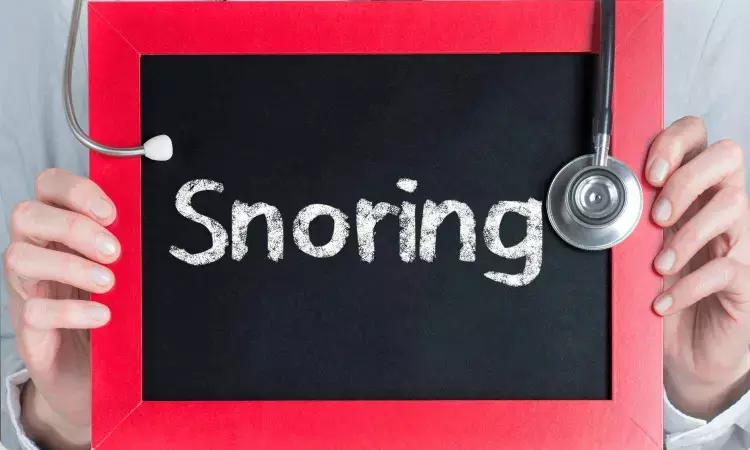- Home
- Medical news & Guidelines
- Anesthesiology
- Cardiology and CTVS
- Critical Care
- Dentistry
- Dermatology
- Diabetes and Endocrinology
- ENT
- Gastroenterology
- Medicine
- Nephrology
- Neurology
- Obstretics-Gynaecology
- Oncology
- Ophthalmology
- Orthopaedics
- Pediatrics-Neonatology
- Psychiatry
- Pulmonology
- Radiology
- Surgery
- Urology
- Laboratory Medicine
- Diet
- Nursing
- Paramedical
- Physiotherapy
- Health news
- Fact Check
- Bone Health Fact Check
- Brain Health Fact Check
- Cancer Related Fact Check
- Child Care Fact Check
- Dental and oral health fact check
- Diabetes and metabolic health fact check
- Diet and Nutrition Fact Check
- Eye and ENT Care Fact Check
- Fitness fact check
- Gut health fact check
- Heart health fact check
- Kidney health fact check
- Medical education fact check
- Men's health fact check
- Respiratory fact check
- Skin and hair care fact check
- Vaccine and Immunization fact check
- Women's health fact check
- AYUSH
- State News
- Andaman and Nicobar Islands
- Andhra Pradesh
- Arunachal Pradesh
- Assam
- Bihar
- Chandigarh
- Chattisgarh
- Dadra and Nagar Haveli
- Daman and Diu
- Delhi
- Goa
- Gujarat
- Haryana
- Himachal Pradesh
- Jammu & Kashmir
- Jharkhand
- Karnataka
- Kerala
- Ladakh
- Lakshadweep
- Madhya Pradesh
- Maharashtra
- Manipur
- Meghalaya
- Mizoram
- Nagaland
- Odisha
- Puducherry
- Punjab
- Rajasthan
- Sikkim
- Tamil Nadu
- Telangana
- Tripura
- Uttar Pradesh
- Uttrakhand
- West Bengal
- Medical Education
- Industry
Snoring in adolescents linked to problem behaviors but not cognitive deficits, reveals JAMA study.

Snoring in adolescents linked to problem behaviors but not cognitive deficits, reveals JAMA study.
Snoring is central to sleep-disordered breathing (SDB), which arises from nocturnal upper airway resistance. Habitual snoring is associated with cognitive and behavioral problems in young children, but less is known about these associations in adolescents. A study was done to assess the longitudinal associations of snoring with cognition and problem behaviors among adolescents.
This cohort study was a secondary analysis of the Adolescent Brain Cognitive Development (ABCD) Study dataset (release 5.0), which enrolled 11 875 children and a parent or caregiver from June 1, 2016, to October 15, 2018, at 21 participating US research institutions and followed-up for 5 years. The analysis was performed between December 2023 and April 2024. Cognition was assessed using 5 measures from the National Institutes of Health Toolbox (NIH-TB), and caregiver-reported problem behaviors were assessed using the Child Behavior Checklist (CBCL), including Total Problems, Internalizing Problems, and Externalizing Problems. Longitudinal associations of snoring with these assessment measures were analyzed using linear mixed-effects models stratified by obesity. Model fits were assessed after including the fixed-effects of age, sex at birth, race, family income, follow-up time, visit type, and the random-effects of site and identification number.
Results: The study included data from 11 862 children at year 1 (mean age, 119.0 months [95% CI, 118.8 to 119.1 months]; 6164 male [52.2%]) and 11 198, 10 870, 10 064, and 4668 children at years 2 to 5, respectively. The proportion of habitual snorers decreased from 811 participants (6.8%) in year 1 to 150 participants (3.2%) in year 5. Snoring was not associated with any of the NIH-TB scores. A statistically significant association of snoring was identified with all CBCL scales. The largest-magnitude association was of snoring with the CBCL Total Problems scale among adolescents with obesity (β = 3.18; 95% CI, 2.59-3.77).
In this cohort study analyzing associations of snoring with cognitive test scores and problem behaviors based on the ABCD dataset, the prevalence of snoring declined over time; snoring in adolescents was associated with problem behaviors but not cognitive deficits. These findings may aid shared decision-making regarding treatment options such as adenotonsillectomy for adolescents with SDB.
Reference:
Isaiah A, Uddin S, Ernst T, Cloak C, Li D, Chang L. Cognitive and Behavioral Outcomes of Snoring Among Adolescents. JAMA Netw Open. 2024;7(11):e2444057. doi:10.1001/jamanetworkopen.2024.44057
Dr. Shravani Dali has completed her BDS from Pravara institute of medical sciences, loni. Following which she extensively worked in the healthcare sector for 2+ years. She has been actively involved in writing blogs in field of health and wellness. Currently she is pursuing her Masters of public health-health administration from Tata institute of social sciences. She can be contacted at editorial@medicaldialogues.in.
Dr Kamal Kant Kohli-MBBS, DTCD- a chest specialist with more than 30 years of practice and a flair for writing clinical articles, Dr Kamal Kant Kohli joined Medical Dialogues as a Chief Editor of Medical News. Besides writing articles, as an editor, he proofreads and verifies all the medical content published on Medical Dialogues including those coming from journals, studies,medical conferences,guidelines etc. Email: drkohli@medicaldialogues.in. Contact no. 011-43720751


